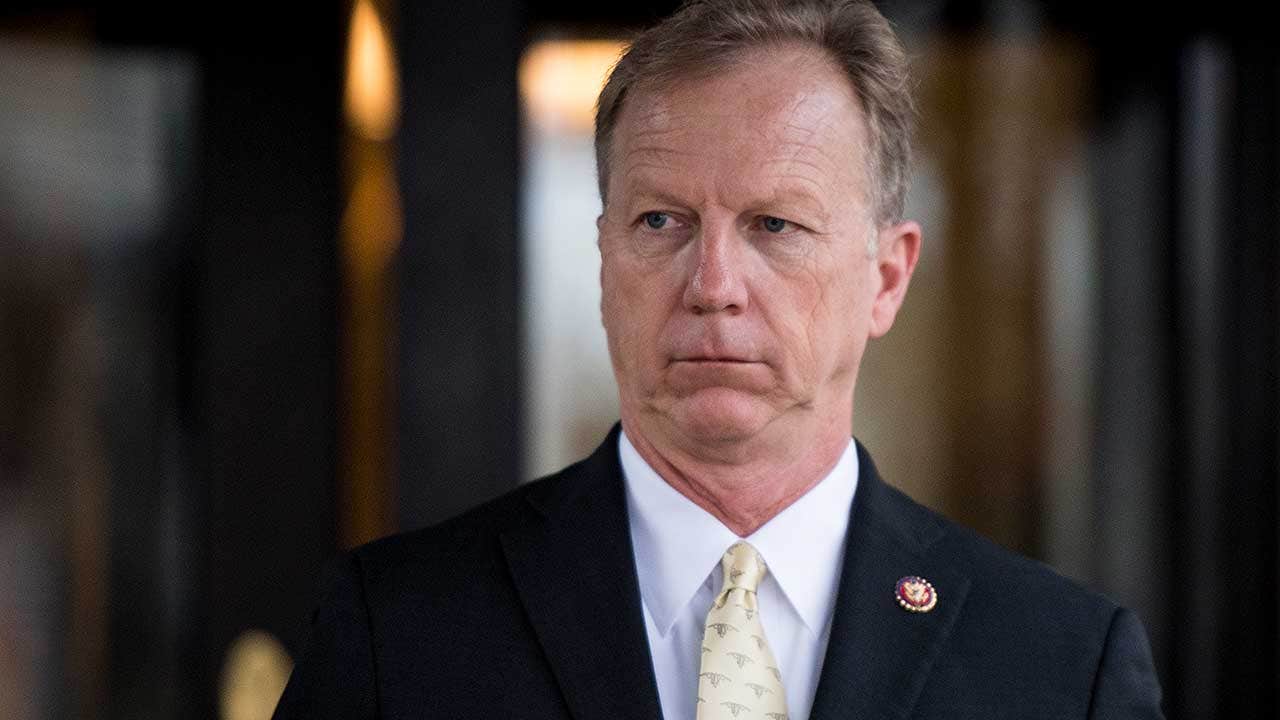FIRST ON FOX – More than 100 House Republicans signed a letter Monday promising not to vote to increase the debt ceiling under any circumstances, saying that Democrats should “take responsibility for increasing the debt ceiling” because of their trillions in proposed government spending.
“Democrats have embarked on a massive and unprecedented deficit spending spree. Without a single Republican vote, they passed a $1.9 trillion ‘Covid relief’ bill in March,” the letter, which garnered the support of 103 House Republicans, says. “Now they have passed a $3.5 trillion Budget Resolution, again without a single Republican vote.”
It adds: “In order for this spending to occur, our nation’s debt limit will have to be increased significantly. Because Democrats are responsible for the spending, they need to take responsibility for increasing the debt ceiling.”
The letter is led by Rep. Kevin Hern, R-Okla., who is the leader of the Republican Study Committee (RSC) Budget and Spending Task Force. It’s also joined by Rep. Jim Banks, R-Ind., GOP Conference Chair Elise Stefanik, R-N.Y., and several other high-profile embers like Reps. Dan Crenshaw, R-Texas, and House Freedom Caucus Chairman Andy Biggs, R-Ariz. The total of 103 supporters represents nearly half of the 212-member conference.
ALL BUT 4 SENATE REPUBLICANS VOW NOT TO VOTE TO RAISE DEBT CEILING
It is essentially the same letter as 46 Senate Republicans signed earlier this month and represents a coalescing among Republicans around the strategy of Senate Minority Leader Mitch McConnell, R-Ky., to use the debt limit as a cudgel to hammer Democrats over what Republicans consider irresponsible spending. They want Democrats to pass the debt ceiling increase through budget reconciliation, bypassing the legislative filibuster in the Senate.
The letter also ratchets up the tension in what is a high-stakes partisan game of chicken with potentially dire economic ramifications if the government defaults on its debt.
“A vote to raise the debt ceiling implies consent to the spending. Like our colleagues in the Senate, we want to make it absolutely clear that Democrats alone are responsible for this,” Hern said in a statement.
The letter says the House Republicans who signed it “will not vote to increase the debt ceiling, whether that increase comes through a stand-alone bill, a continuing resolution, or any other vehicle.” It also emphasizes that the government “should not default on our debts under any circumstances” but that any default would be because Democrats declined to use their tools as the party in power to prevent it.

Rep. Kevin Hern, R-Okla., leaves a House Republican Conference meeting at the Capitol Hill Club on Tuesday, Oct. 22, 2019. Hern is leading a letter supported by nearly half of House Republicans who say they won’t vote for any debt ceiling increase. (Photo By Bill Clark/CQ-Roll Call, Inc via Getty Images)
Democrats argue that Republicans’ debt limit arguments are dishonest. They say most of the spending that will cause a breach of the debt limit later this year was passed on a bipartisan basis before President Biden assumed office.
They also note that Republicans significantly increased the deficit when they were in power during the first two years of former President Donald Trump’s term and that raising the debt limit has long been a bipartisan endeavor.
CLICK HERE TO GET THE FOX NEWS APP
“The vast majority of the debt subject to the debt limit was accrued prior to the administration taking office,” Treasury Secretary Janet Yellen said earlier this month. “This is a shared responsibility, and I urge Congress to come together on a bipartisan basis as it has in the past to protect the full faith and credit of the United States.”
Democrats did not include a provision to raise the debt limit in the $3.5 trillion budget resolution they passed through the House last week. That was their first chance to pass a debt limit increase through budget reconciliation.
But thanks to a ruling from the Senate parliamentarian earlier this year, they have the ability to pass a stand-alone debt limit increase by using a previous budget reconciliation vehicle, and thus bypassing the GOP in the Senate. If the 46 Republicans who signed the letter saying they won’t vote for a debt limit increase stick together, they can block any bill that isn’t done by reconciliation.
The 2019 debt limit suspension expired on July 31, but the Treasury is taking steps to prevent a default until sometime in the fall.
Source link

